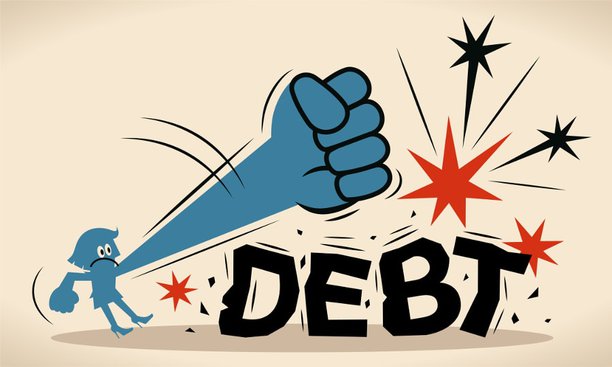How does Debt Consolidation Work?

In a nutshell, debt consolidation is the process of obtaining a single loan to pay off multiple smaller loans or debts owed. Essentially, all of your existing debts are being combined or "consolidated" and the new loan is then used to pay them off. In practice, these loans are used to consolidate debts such as credit card bills, overdrafts, utility bills and even payday loans. Largely issued by banks, credit unions and other consumer finance companies, the main objective of a debt consolidation loan is to gain a lower interest rate than the weighted average interest rates on all your other loans. This enables the individual to pay less in interest costs through the life of the loan.
The Process
- List down the outstanding debts you have
The first thing to do is capture all of your outstanding debts in one list. Make sure everything that you are paying interest for on a month to month basis is listed, so it can be covered by the debt consolidation loan.
- Write down the monthly payment owed, total amount owed and interest on each debt
Next to each item on your list, write down the monthly payment you have to make, the total amount you have to pay and the interest you are paying on that debt. This will help you identify the size of the debt consolidation loan you need as well as a feasible interest rate on the loan to ensure that a debt consolidation loan remains economical for you.
- Do your research
Once you know the amounts owed and the interest you are paying on each loan or debt, start doing your research on lenders that offer debt consolidation loans and try to get pre-qualifications from these lenders. This will help you benchmark the different options you have on the table and help you select the best one. When comparing different loans, remember it is not just about the interest rate being offered, but also the fees you have to pay to obtain the loan.
- Obtain the loan and pay off your other debts
Once you select the best debt consolidation loan for you, apply for it. Once received, use the proceeds to pay off the various debts you listed from Step 1 earlier. Important: Make sure you call and confirm that each and every outstanding debt has been paid off to avoid having to pay interest or penalty fees later.
- Pay off the debt consolidation loan
Now that your smaller debts are all paid off, you just have the one debt consolidation loan to pay. Most lenders will enable a direct debit set-up that allows for automatic withdrawals from your checking account each month.
How do consolidation loans work?
There are two main ways that debt consolidation loans work. (i) the lender works with you to identify which debts should be paid off, and pays them out directly or (ii) the lender deposits a lump sum payment into your account and it is then your responsibility to use the proceeds to pay off all of the other loans.
What kind of debts can be consolidated?
There is a broad range of debts that can and should be consolidated if you have opted to pursue a debt consolidation. Start with the debts with the highest interest rate. In most cases, this is credit card debt that can accrue at 19%+ annually. Keep in mind though that to qualify as debt that can be paid off via a consolidation loan, the debt has to be unsecured debt. For secured debt such as mortgages and automotive loans, the lender who provided those loans to you has first right on that asset and would get repaid by selling those assets in the event that loan repayments are not made on time.
That said, unsecured debt can include any or all of the following. Note that this is not a comprehensive list and other unsecured debts outside of this list may also be able to get consolidated into the single large loan.
- Credit cards
- Overdue tax payments
- Retail store credit cards
- Unsecured personal loans
- Utility bills
- Overdue child support payments
The Advantages of Debt Consolidation
- Lower interest rate
As noted above, this is one of the top advantages of a debt consolidation loan. By rolling all of your existing outstanding debt into a single loan that accrues interest at a lower rate than the individual debts, you can pay down your debt faster and also potentially pay less in interest costs through the life of the loan.
- One payment
Remembering the amounts and due dates of various loans and debts each month can be a bit of a balancing act. This can cause missed payments (which carry penalties) and/or overdrafts on your bank account (if the payment is automatically taken from your account each month). By having a debt consolidation loan, only one payment is made during each period, which saves the time and effort required to remember and pay off all the other debts.
- Lower monthly payments
If the new debt consolidation loan offers a longer term than the previous loans, then your monthly payment overall is lowered, thereby increasing your monthly cash flow.
- Improve your credit score
With the lower payments under the debt consolidation loan as well as the substantially reduced chance of missed payments, your credit score should show a positive trend. In addition, your previous loans that will now show as paid off (with the debt consolidation loan) will also boost your credit score.
Overall, there are several benefits to obtaining a debt consolidation loan and hopefully this article has provided you with some of these advantages as well as an understanding of the process. Before you make the leap though, it is always advisable to create a financial plan and monthly budget to ensure you don't enter any poor spending habits once you receive the debt consolidation loan. Reach out to our team at Magical Credit today to see if we can be of any help to you!





